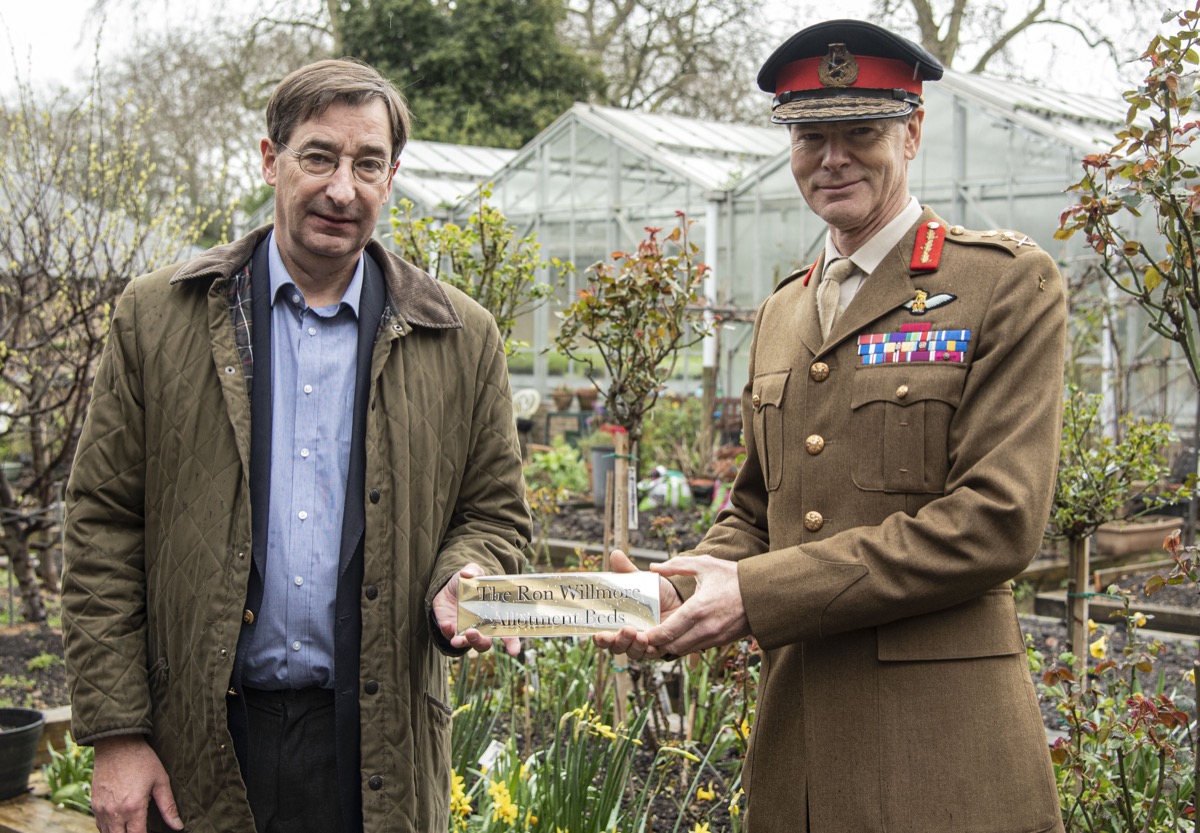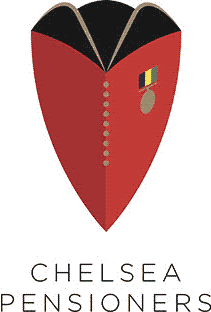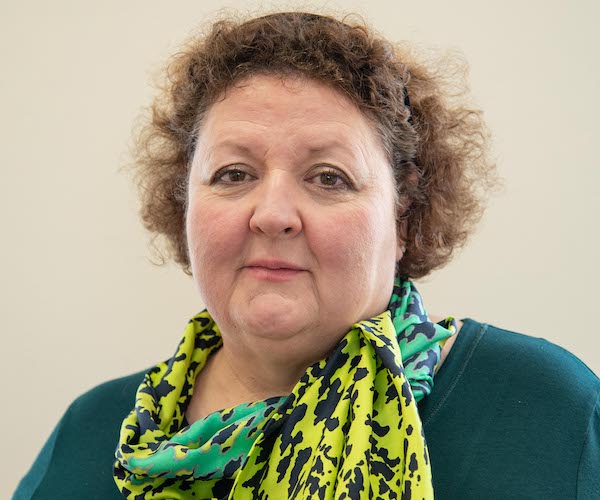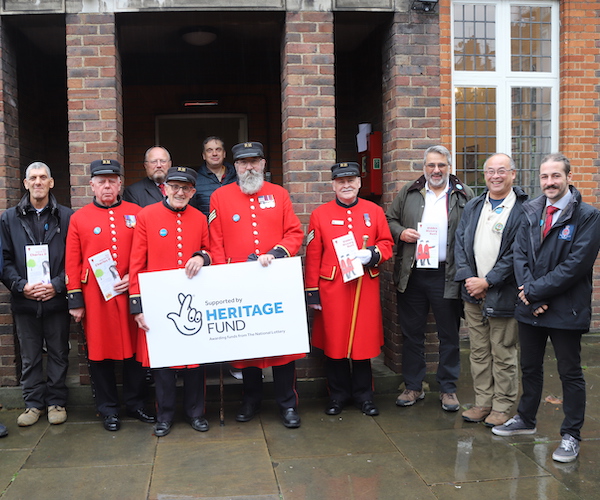
Goodbye to Ron… Hello to Ric
28th February 2020
After 38 years, Ron Willmore – the Royal Hospital’s Grounds Manager – is hanging up his gardening gloves and retiring. In recognition of Ron's four decades of service and outstanding commitment to his work, the Governor, General Sir Adrian Bradshaw KCB OBE DL, was proud to announce that the Hospital will allocate several allotment beds in Ron's honour.
While he will be much missed, we’re delighted to welcome Ric Glenn, who will be taking over Ron’s role. We talked to them both about their history, caring for the Royal Hospital’s grounds and their hopes for the future.
Gardening roots
Ron says:
“My father was a very keen and experienced amateur. He used to grow roses to show and had a vegetable plot, so I learned from an early age. I was growing plants from 10 or 11 with him. I’ve always been an ‘outside’ person. I like angling and ornithology too. One of the things I found really rewarding was growing something from a seed or cutting, planting it out and seeing it grow and come into flower, fruit, whatever. You learn so much along the way. Seeing the result can be almost life changing when you’re younger and you start to realise how you can use these plants to improve a landscape. Then you see it as a job, a career – you can earn your living by something you’re interested in. There’s the science, the art, the design – it’s got so much.”
Ric says:
“I’m from a horticultural family. My father is one of the key nurserymen in Australia – he’s got a very famous garden called Lambley Nursery originally in the hills of the Dandenongs now in Ascott near Melbourne. I was taught to value plants from a very young age. My father would give us 50 cents every time we spotted a wild orchid out in the bush. My mum’s an art teacher so I had strong artistic influences too. There were only two industries where I came from – horticulture and hospitality. I tried both and decided I’d prefer sticking to horticulture.”
Starting out
Ron says:
“I was 22 when I came to the Royal Hospital. Before that, I’d been a City & Guilds apprentice for four years, and a student at Kew. Apprenticeships were really good – you learned the scientific bits, the basics and you did the practical stuff at work. At school I did rural science, botany, biology – it was all the natural world for me. That’s where my interests lay.”
Ric says:
“I ended up getting the walkabout urge. I was encouraged to go on a plant-collecting trip to south China through the nursery I was working at. I found some amazing things and was following in the footsteps of famous plant collectors like Wilson and Rock. I got the real travel bug there.”
From Denmark to Chelsea – Ric’s road to the Royal Hospital
Ric says:
“For romantic and foolish reasons I ended up in the magical kingdom of Denmark.
Once I’d learnt enough of the language I was fortunate to get a job in the University of Copenhagen Botanic Gardens. It was an incredible place to work. They gave me a rare collection of tropical orchids to look after, so in the middle of the Scandinavian winter I’d be wearing shorts, flipflops and a t-shirt! I had a series of short contracts there, but – being a university – they encouraged me to finalise my education. One of my proudest achievement was topping the averages for that year in horticulture – in Danish. Then the university found the money to send me on a study trip to Kew Gardens and I lived and studied there, working with their tropical orchid collection. For a horticulturalist, Kew was like Mecca – incredible people, incredible plants – I’ve been very privileged.
While I was working at Kew I met my wife so I moved permanently to England. I’ve had a number of different jobs including head gardener at Dulwich Park, head gardener at Cadogan Estate, here in Chelsea, and grounds manager for the Crown Estate based in Regent’s Park.”
First impressions
Ron says:
“I started at the Royal Hospital in April 1982, which happened to coincide with the start of the Falklands War. I saw an advert in the Gardeners’ Chronicle for a gardener with single accommodation, which was an attraction. I came for the interview and got the job. John Ottaway was Superintendent of Grounds at the time.
I came here from Worcestershire on the coach. All I had was an old Army rucksack and a cardboard suitcase from Woolworths. My first impression was that I’d joined the Army! I lived temporarily in the old Infirmary and when I reported to reception I was marched upto my room by the Quartermaster Sergeant. It was all laid out with three blankets, one sheet, plate, cutlery – everything on the bed. I had to check I hadn’t actually signed something on the dotted line to join up! I said, ‘You know I’m here as a gardener?’. The Royal Hospital was running on rather more strict Army rules then, which have been relaxed over the years.
I spent eight months or so in the old Infirmary. Since then I’ve lived in about eight different places including a flat at the back of London Gate. Now I’m in West Lodge in Burton Court. There were two or three more grounds staff when I started – we’ve invested in more machinery since then. The team are my friends. We see each other every day, we chat in the morning and communicate in the best way – face to face.”
Ric says:
“My first impression of the Royal Hospital was that people were very warm and welcoming. They even said ‘Good morning’ to me, which doesn’t happen all over London. It’s been a fabulous way to arrive. I should also say a big thank you to Ron for preparing the handover of a complex site and a complex role. Bit by bit, he’s been introducing me to all the relevant players and outside agencies.
I think the team here is really solid. There are some strong characters. We’re really fortunate to have grounds staff who take a lot of pride in what they do. They really care about the grounds and about the Pensioners. I feel blessed that’s my starting point.”
Working with the Pensioners
Ron says:
“The allotments and raised beds have been a great success. We’ve got about 30 or so regular growers. Pensioners do come and ask advice, but normally they’ve already made their minds up. They seem to prefer learning by their mistakes – or not learning! Help is always at hand should they want it.
The Pensioners who work in the allotments and raised beds look well. As well as the physical exercise it’s being out in the fresh air, working with nature and having a purpose. And of course they meet other Pensioners. They might have a cup of tea, swap stories about what they’re growing and learn from each other. That’s got to be good.
I’ll miss the Pensioners – it’s like a village here and you get a complete mixture of society. Last year I started a fishing club with Pensioner Peter Turner and he’s keen to carry that on. I’m planning to come and do a bit of fishing with the club next year.”
Ric says:
“I’m really looking forward to working with the Pensioners in the allotments. I’m putting my name on the list for an allotment too, so if I’m fortunate enough to get one I”ll pop down in my spare time as well. Although I’ve only been here a short time, I’ve met some fabulous characters. I want to encourage all the Pensioners to come down and meet me in the allotments or the gardens – to get out there and ask questions of the team.”
Ron’s career highlights
Ron says:
"Having a garden in the Chelsea Flower Show was a highlight. It was called A Soldier’s Dream of Blighty and was designed by Julian Dowle – we grew a lot of the plants here. It won a gold medal. We also got a silver-gilt medal for our garden in the Inner Temple Flower Show – a one-off celebration. Both involved staff and Pensioners and were challenging and rewarding.
A recent good achievement was the relocation and improvement of the allotments and raised beds – that’s gone from strength to strength. We didn’t lose any of the Pensioners along the way and every year it’s getting better."
The impact of events
Ron says:
“The South Grounds if now accepted as being a show ground – it used to be football pitches during the winter, because there was only the Chelsea Flower Show. Now we have four months of events. In the 1980s, the Flower Show was a vicarage tea party, compared to what it is today. Now there can be up to 600 people working on the site during the build-up. I’ve seen it evolve in my 15 years as Grounds Manager – it’s not just a horticultural event but a social one and important for London and the Borough. The RHS and the Royal Hospital both need the event.
We carry on working before and during the Flower Show because the grass doesn’t stop growing! And there’s the reinstatement of the grounds afterwards. It affects Ranelagh Gardens and the paths – because they’re bringing in bigger machinery.”
Ric says:
“I’ve done events on grounds before but none on the scale and reach of the Chelsea Flower Show. One of the challenges here will be putting the grounds back into shape after such a big series of events – there’s also Masterpiece and Global Champions. It limits what you can do, because the whole growing season is covered with events and the grounds need to recover when they wouldn’t naturally be doing so – in the middle of winter. Maintaining these gardens so we can continue to hold these events will be a great challenge – but challenges are what makes a job interesting. I’m looking forward to the Chelsea Flower Show – it’s of global significance and I’ve always loved it.”
Personal perspectives
Ron says:
“I’ve known Ric from when he was head gardener for Cadogan Estate up the road. The Chelsea Physic Garden, Inner Temple and Cadogan are all on the river, so we tend to keep in contact horticulturally. Ric’s a very good horticulturalist and has lots of experience in landscape, ecology – things we need to look at these days and he will have the energy to do it. We have more heritage work and conservation – he’ll bring those qualities.“
Ric says:
“As the Royal Hospital and Cadogan Estate have been good long-time neighbours I knew Ron. I had some idea of what his role was, but it won’t fully hit me until I’ve spent a full year here. Everyone knows me as ‘the new Ron’ and I’m fine about that – I’m flattered! He’s been here for 39 years so it’s easier for people to understand – if I introduce myself as Ric, it means nothing but if I say ‘I’m the new Ron’ there’s the appropriate amount of respect!
New horizons
Ron says:
“I’m going to be moving to Redditch in Worcestershire, where I came from. I have family there and a flat. It’s a lovely part of the country with lots of rivers. I intend to do more fishing and see more family.”
Ric says:
“You need a full year horticulturally before you can start making promises about what you can do, because you don’t know what your starting point is. So, I’ve got lots of ideas but first I’ll get my feet under the table and see what it is. I’m aiming to survive my first events season and seeing if we can put it all back together.
A key theme will be biosecurity – we have a very important horticultural collection and grounds here and we need to be sure we aren’t bringing in disease and be rigorous about where we source plants from. I’m also interested in the biodiversity of the site and in tree health and doing community projects enhancing biodiversity. We have an apprenticeship programme here – I look forward to working with that and with the RHS and other stakeholders.”
The end of an era – and the start of a new one
Ron says:
“I stayed here for all sorts of reasons. It always seemed secure and we all come to work to earn money and live. But if you can do that and be happy and enjoy your work – and you’re still learning and progressing – that keeps you here. Plus it’s central London! It’s like a country estate. People are largely friendly and approachable. Those things keep you here. Now it’s time for fresh eyes and enthusiasm. After 38 Flower Shows and Founder’s Days you get to a point where you can’t take the department any further. It’s time for someone else. I feel I’ve done what I can.
When I leave it’s going to be fairly low key – a couple of meals and a farewell coffee morning in the Chelsea Pensioners’ Club. I shall melt away into the twilight!”
Ric says:
“Ron’s an institution in himself. Following in his footsteps is a daunting prospect, but I’m up for the challenge. He will be missed by many people and hopefully I can grow to fill his shoes.
I’m confident that I can make something of the role and I’m certain that I’ve made a good choice deciding to come here, just by the amount of positivity in the community. I feel comfortable here and welcomed, the support seems to be there. It’s an iconic institution and something of a noble cause to be working with the Pensioners. If we can reach out and help, that’s a good thing too.”






